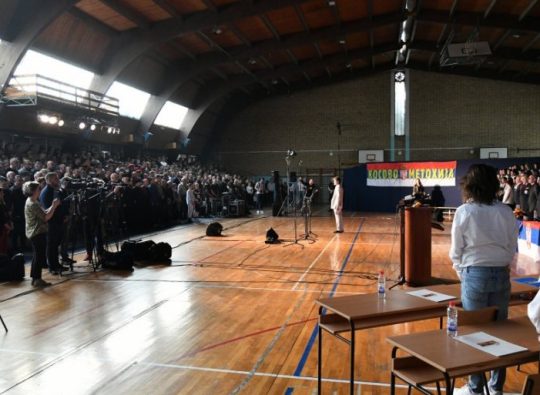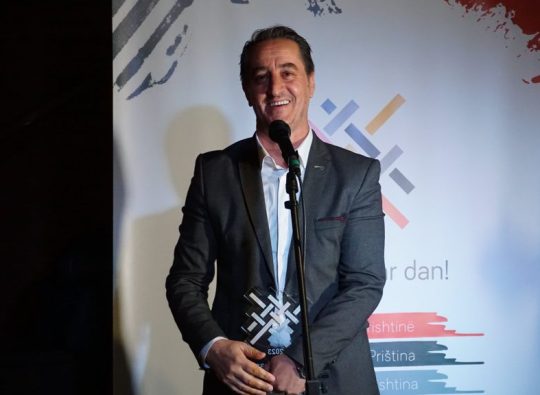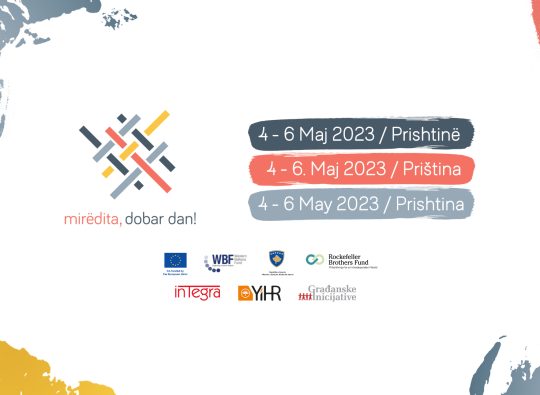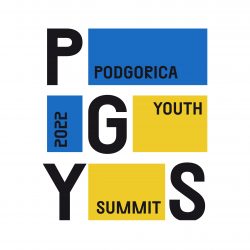Youth Initiative for Human Rights representative Fiona Jelići said at the award ceremony at the Centre for Cultural Decontamination that the mass grave in Batajnica is not talked about and nothing is known about the victims, that the mass grave in Batajnica does not exist in our public space – it is absent from both conversation and memory, while Glavonić is one of those who stood up against it, loudly and articulately.
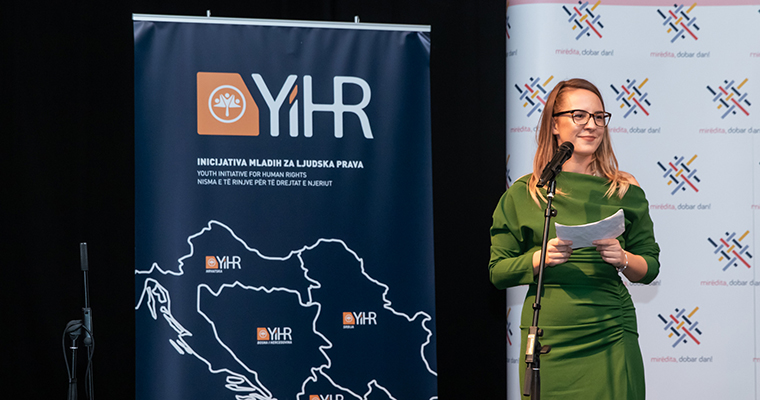
The award winner Ognjen Glavonić thanked for the award and said that “people who expose themselves as young people at the Initiative do are to face insults, violence and agression”, for which reason he proudly accepteed the award as his manifestation of support.
The “Mirëdita, dobar dan” Festival Award was introduced three years ago and is awarded to individuals and institutions that build special relations between Serbian and Kosovo society.
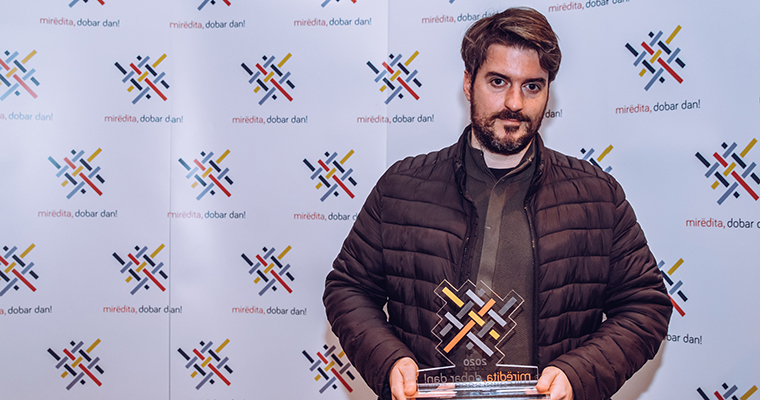
Besides the award ceremony, on the last day of the festival, the visitors had an opportunity to attend and take part in the debate “Transitional Justice in Kosovo Today”, focused on the memory of victims of war in Kosovo, individual responsibility and prosecution of war crimes, as well as of finding missing persons.
Besart Lumi, political analyst and author of “Democratisation of Transitional Justice: Towards Deliberated Infrastructure for Dealing with the Past in Kosovo” said that Kosovo still struggles difficulties with regard to dealing with the past, and that problems of absence of information on what happened during the war and on missing persons still prevail.
“All ethnic groups should be included and all information should be gathered. It is very important that there is an initiative to talk about the past and then see how the transitional justice strategy should look like”, said Lumi.
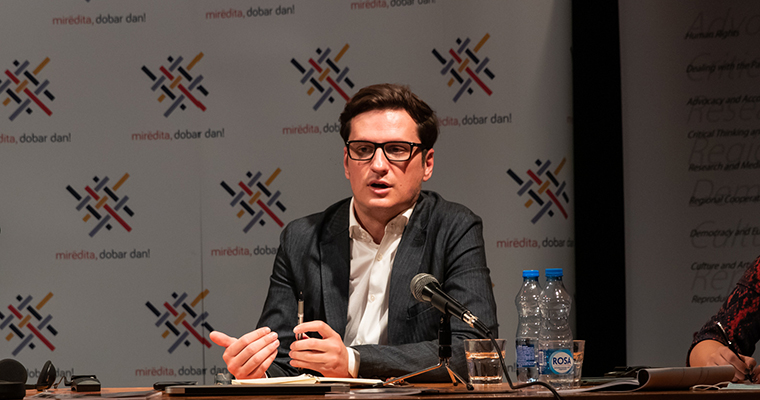
Jovana Radosavljević from Kosovska Mitrovica-based New Social Initiative said that Serbs in Kosovo have never been part of negotiations nor have they sit at the negotiating table, and that they do not feel included in Kosovo institutions, although they are in part integrated.
“The reason why Serbian community does not trust Kosovo institutions is because Kosovo institutions themselves do not comply with Kosovo laws”, stressed Radosavljević.
She said that attempts to deny the heritage of the Serbian Orthodox Church and declare it the heritage of Kosovo is very problematic.
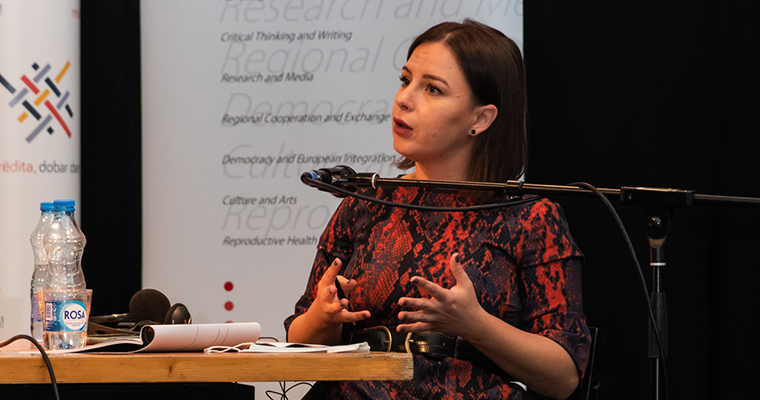
Nora Ahmetaj, activist from Priština, said that the citizens of Kosovo should move forward and that the truth about victims should be demanded, regardless of their ethnic origin.
“The majority of the Albanian community is of the opinion that an apology from Serbia would soften the relations. On the other hand, young people from Serbian community say that crimes are individual and that those responsible for the crimes should be held responsible”, said Ahmetaj and added that a data base should be made from which young people would learn about what happened in the past so that similar situations never repeat.
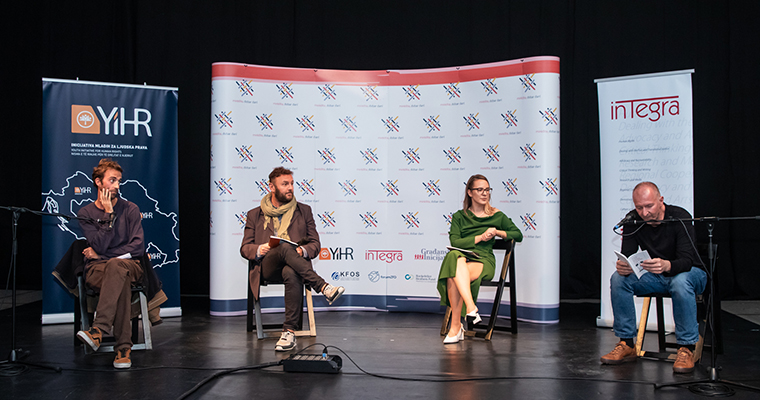
The Festival was closed by actor Tristan Halilaj reading excerpts from his book “Richard Gere Was Here”, a collection of stories originally published in Serbian language. For the end, the audience will have an opportunity to watch the film “Aga’s House”, to be screened at the Centre for Cultural Decontamination.
Inspiration for the festival “Mirëdita, dobar dan!” is Bekim Fehmiu, a famous Albanian, Kosovo, Belgrade, Yugoslav, and world actor, a symbol of unity and division, and the possibility of connecting two cultural spaces into a single whole.
A unique “Mirëdita, dobar dan!“ Festival that has been taking place in Belgrade since 2014, is organised by the Youth Initiative for Human Rights and Civic Initiatives from Belgrade and Integra from Priština.

